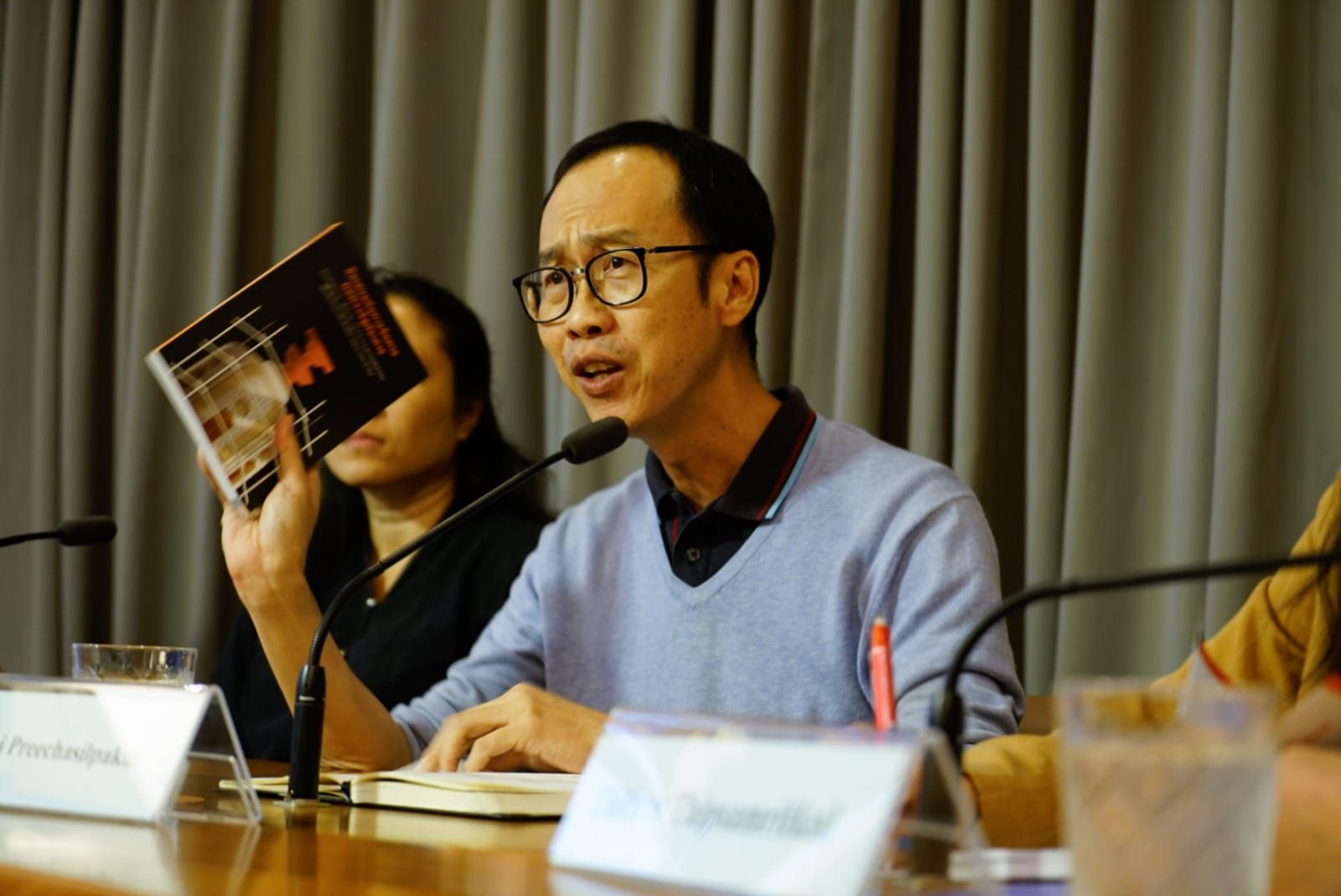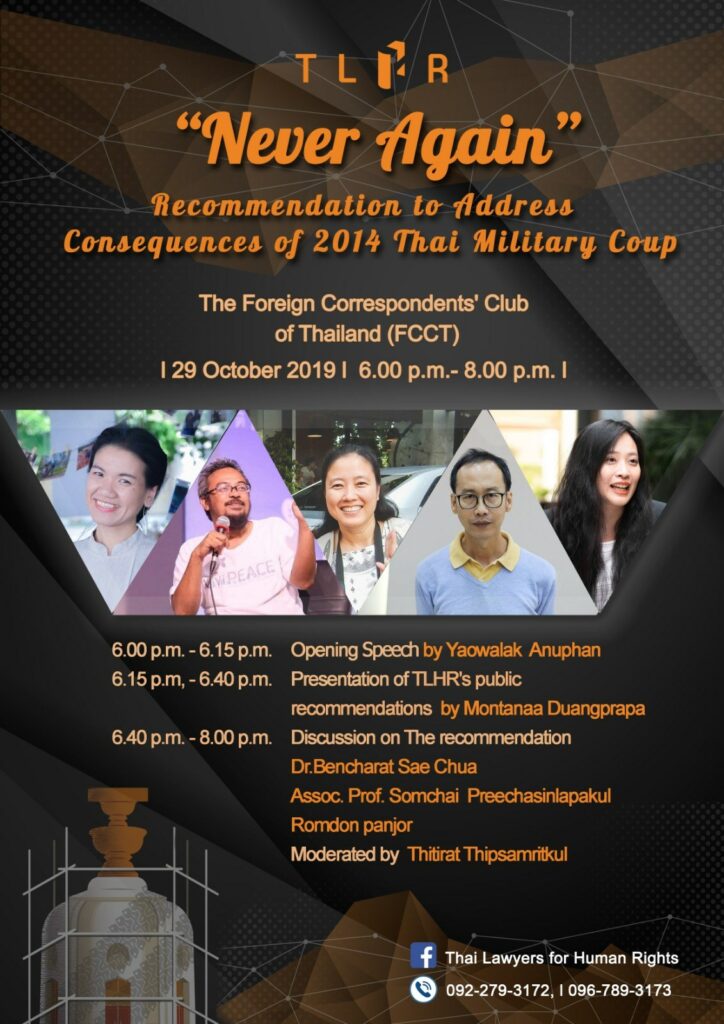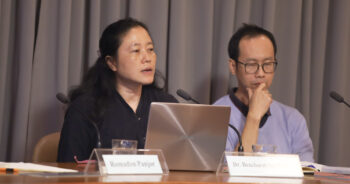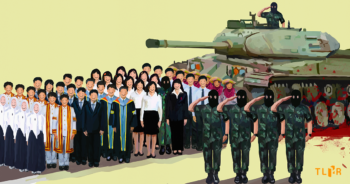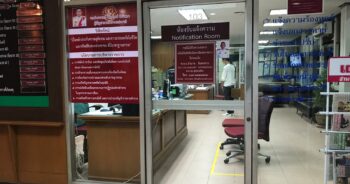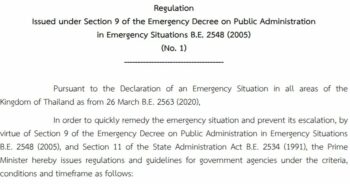On 29 October 2019, 18.00 at the Foreign Correspondents’ Club of Thailand (FCCT), the Thai Lawyers for Human Rights (TLHR) held a public discussion entitled “Seize, Trample, Repeat, Change”, the Launch of Propositions to Remedy the Consequences of the 2014 Coup” concerning the laws, policies, and the judicial process intended to ensure the protection of people’s rights and freedoms. The three speakers included:
– Bencharat Sae-Chua – Institute of Human Rights and Peace Studies, Mahidol University
– Assoc. Prof. Somchai Preechasilpakul – Faculty of Law, Chiang Mai University
– Romadon Panjor – Deep South Watch
with Thitirat Thipsamritkul from the Faculty of Law, Thammasat University as moderator. Participants were also encouraged to share their opinions and exchange thoughts with the speakers.
The publication is available at https://tlhr2014.com/?wpfb_dl=112
Video from the seminar can be viewed here https://www.facebook.com/PITVFanpage/videos/449010922639828/
————————————————————
Reflecting on Thailand’s politics and laws, Assoc. Prof. Somchai Preechasilpakul illustrated 3 issues; the hegemonic power in Thailand is exercised by the “deep state”, how people surrender themselves to extraconstitutional power exercised through the justice process and, how laws are legislated to pave the way for violations of people’s rights. But some people do not surrender to the oppressive structure being imposed on them. This is the reflection of the speaker from the public discussion on how to remedy the consequences of the coup.
——————————————————–
Assoc. Prof. Somchai Preechasilpakul on laws and judicial process
The discussion began with Assoc. Prof. Somchai, who outlined the sections of the TLHR’s recommendation. The book’s five sections include (1) consequences of the coup and their influence on law and policy, (2) problems in the judicial process in the aftermath of the coup, (3) TLHR’s proposed remedies to the consequences of the coup, (4) appendix, and (5) military reform.
Assoc. Prof. Somchai cast the first three sections of the book which comprise of two major issues;
- The so-called “state within a state”
Assoc. Prof. Somchai alludes to another political system that exists discreetly beneath the façade of democracy in Thailand, and how this system possesses immense power and can entirely determine the direction of Thai society, without heeding people’s voice and civil society. This hidden system is legitimized by the legislative and judiciary powers.
“The book sheds light on how another political system exists discreetly within the so-called democratic system. From outside, people only see how the Constitution is promulgated and enforced, with the court that certifies its authority. For certain academics, Thailand under the state of exceptionalism is unavoidable, although I do not quite agree with this. A state of exceptionalism should take place provisionally, but in Thailand, such exceptionalism can last forever. Some people may refer to it as a “Deep State”, albeit in our case such state is not hidden so deep, rather it exists in plain sight. In other words, such legislative and judicial powers can be arbitrarily exercised against anyone at whim.”
“Such a state within a state retains no connection to the people. What can it do? It permeates and morphs itself into a bureaucratic structure. It even has power over the bureaucracy. It permeates the judicial process, making Thailand’s justice system lame and tame; the judiciary simply legitimizes the law without asking any question and accepts all legal implications of any orders. Given this situation, people’s rights and freedoms are effortlessly infringed. And when such infringement takes place, there are always attempts to explain why “it must be so, and we must act in this way since our society is not in a normal state.” People’s rights and freedoms appear to be something that can be disregarded. It is obvious that there are barely any check and balance protocols under the democratic system that can subdue the interference from the state deep within”
- The Perversion of Law and the Justice Process in Thailand
Besides the interventions by the Deep State, Assoc. Prof. Somchai also alludes to how Thailand’s legal code and judiciary system have been perverted since the beginning. Such perversion peaked during the reign of the National Council for Peace (NCPO). He also notes the stark differences in terms of law enforcement when there is a dispute between civilian parties versus between a civilian and the State.
“Thailand’s criminal justice procedure after 1932 can be divided into five steps, namely collecting evidence and facts, an investigation by either the police or military, indictment, trial, and the penitentiary system. A blatant perversion happens when a mentally challenged person is charged. Even though the police are aware of such mental illness from the outset, both the police and public prosecutor decide to press further with the indictment. In one case, an individual was remanded in custody for as long as four years and eleven months. I consider such cases the perversion of law and judicial procedure that became obvious during the NCPO era. A student of law is definitely aware how fundamental the criminal code is, but its enforcement in reality is in such a mess now.”
“Some lawyers in this country often proclaim that our code of law is of a Modern Legal System which has long been reformed and modernized over the last hundred years. They further claim our legal system complies with international standards. I would like to invite them all to read this book. One question that comes to me after finishing the book is whether the incumbent legal quagmire can be entirely attributed to the NCPO’s ascension to power or not. In other words, I am asking if the NCPO by itself could so easily pervert the law and the justice process, or whether in fact our code of law and judicial process have long been in decline. This decline has long been impending and waiting for the opportunity to manifest, and that opportunity was during the NCPO’s rule.”
“I do not think the NCPO is that capable. I think Thai law has long been shrouded in problems, but they have never been raised nor discussed. I am not saying our law is pre-modern. But asking if the law is modern enough? I would rather say no. Our law is not modern. It is a Thai style law. This kind of law has been designed to solve a dispute between two civilians effectively. When two civilians fight, the law can kick in and effectively bring the dispute to rest. But when the dispute is between a civilian and the State, it is an entirely different story.”
“The conflicts since 2014, as illustrated by cases documented in this book, are disputes between the State and civilians. It is not surprising that Thailand’s judicial process fails to ensure justice. These are the two observations I want to make.”
The unending struggle
From monitoring the situation in the past five to six years, Assoc. Prof. Somchai feels the Thai elites attempt to carry out two missions. First, they want to normalize the perverted version of the law. Second, they want to tame society and make us all surrender to their exploitation.
“In the past five to six years, the elites have attempted to initiate two major changes. First, they want to normalize the perverted legal system in Thailand. This task has been made possible by many people, including many lawyers who are more than ready to serve the despotic system; by the decisions made of various independent organizations; and by some media organizations. If you insist that the Head of NCPO is not a public official, how has he been offered an official state car? This is what they have been trying to do in the past five to six years.”
“Furthermore, to normalize the perversion of law, the Thai elites have tried to tame society by making all of us feel hopeless. They are telling us that even if all these things are not normal, however hard we try we cannot win over them. It is fine for us to take the state officers to court, but at the end of the day, the influential power rests by their side and we will lose the case anyway. Even though there are a growing number of people who become disillusioned, we cannot win. And if we know we are going to lose, why waste time fighting?”
“What does the book try to do? I think it is an attempt to shed light on both perversion and perseverance. It is an important point. Of course, TLHR probably know, in many cases that they have conducted, that they are going to lose, nevertheless they decide to fight. This is because they are aware of the power of perseverance.”
“This book chronicling TLHR’s works gives me an inspiration similarly to when I read “Success without Victory.” The latter book tells stories of civil rights movements in the US and their legal rights through the Court procedure. In many cases, they stood to lose. But despite such looming defeats, they knew that it was worth the fight, since it would help to raise public awareness and lay bare to society such extreme perversion. In the long run, such legal fights can pave the way to success. For me, this book is a chronicle of the perversion of our time. We shall not surrender and not allow such perversion to further encroach upon our society, not anymore.”
For more detail of what other speakers had said during the discussion on “Seize, Trample, Repeat, Change” the Launch of Propositions to Remedy the Consequences of the 2014 Coup, concerning the laws, policies and justice process intended to ensure the protection of people’s rights and freedoms.”, please see TLHR.
Relevant article:
